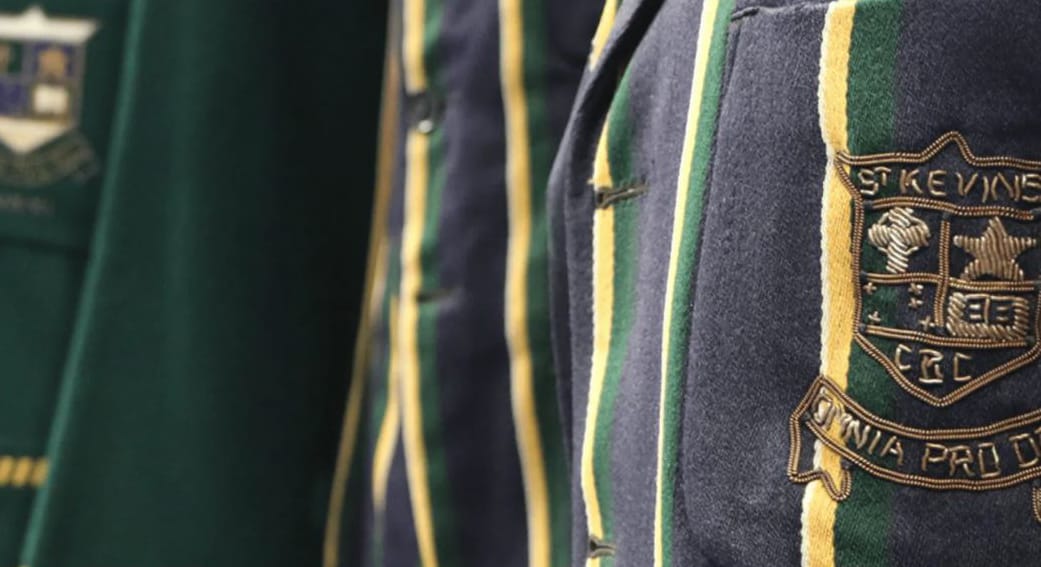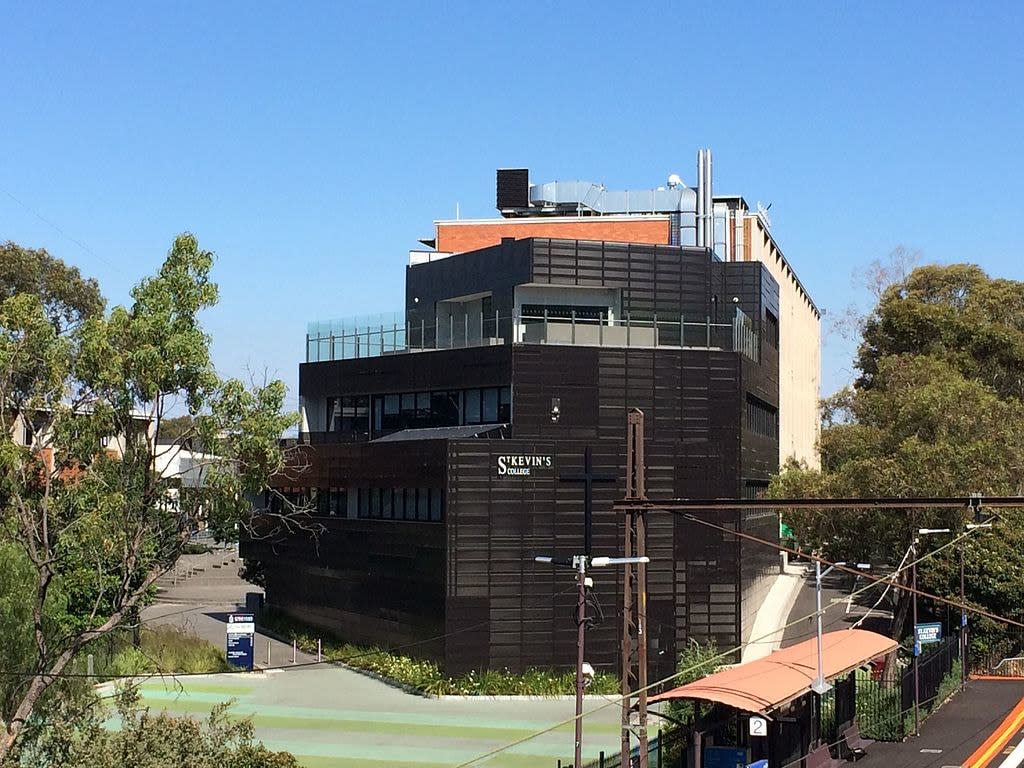
The current media fracas around the St Kevin’s College story, together with the responses of bewildered parents, have seemingly led to the conclusion that a failure of leadership has paved the way for the heinous crime of grooming at this elite private boys’ school.
There would perhaps be little disagreement that decision-making at the top was a critical aspect of how the crime of grooming unfolded, and more importantly how it was silenced in the first place.
However, to its credit, the Four Corners report that broke the story did attempt a nuanced analysis of how aspects of elite private school culture had already provided fertile ground for sexual transgressions to occur. For example, the program highlighted how St Kevin’s, not that long ago, was in the media for all the wrong reasons, when it was “rocked by claims of a ‘sexist and misogynistic’ culture after ‘alpha’ students shouted [an] offensive chant on a public tram”, but also brought into view the experiences of female students and the woman who recorded the material.
While Four Corners attempted to make the connections between these women’s experiences and broader elite private schoolboy culture, the eventual takeaway for the public seems to be that heads must roll, and have.
My research suggests that we need to be cautious in thinking that leadership change will bring a quick fix, and that the problem will thus simply go away. While it also isn’t hard to understand that the St Kevin’s school community, the parents, the boys and their teachers might want a swift resolution to their crisis, my evidence suggests that the problems in elite private boys’ schools run much deeper.
In my doctoral research with 32 teachers in three elite private boys’ schools, in two capital cities in Australia, my findings regarding female teachers’ experiences of sexual harassment suggest there are systemic pressures that lead to a lack of visibility around these types of issues, which then allow them to continue unchallenged. At this juncture of the public scrutiny of the St Kevin’s case, it's these systemic aspects of elite private schooling that mustn't escape consideration.
Historic roots
To begin with, we need to understand that masculinity and identity in gender-segregated elite private schooling has always been problematic.
Going back to these schools’ historic roots, the English public schools, tales of belonging, of bonding, of ritualised violence, and fidelity to the group have historically animated its sensibilities, infusing British elite with the logics of empire-building.
While the contemporary elite private schools and their parents might have more cosmopolitan goals for their boys, the worst effects of the modern elite private boys’ schools’ rusted-on cultural practices, their gender segregation, their lionisation of sport, and the hyper-competition that are hangovers from their forebears continue to manifest a toxic masculinity. For example, in the Australian media, in particular, there have been reports of elite private schoolboys who “encouraged viewers [of a student’s Instagram account] to vote on the ‘slut of the year’,” and elite schoolboys who “filmed and distributed humiliating material”.
In my study, I discovered that female teachers likewise face the worst aspects of elite private schoolboy behaviour on a routine basis. Reports of upskirting, distribution of humiliating material and gossip, stalking, and surreptitious video-recording are examples of teachers’ experiences in elite private boys’ schools that continue to go largely unreported. It's the silences that must be confronted.
The most obvious answer as to the why these silences exist in elite private schools around sexual violence stems from the potential it has to ruin a school’s reputation.
Read more: A privileged position? The vulnerability of young female teachers in elite boys' private schools
The market vulnerabilities of elite private schools, in the main through the value of their reputation, and through their market relation to their high fee-paying clientele, appear to incentivise stakeholders to see the heinous grooming behaviour merely a "hit on" a student, and the brave complaint as a "storm in a teacup".
Elite private boys’ schools like St Kevin’s trade on their histories and age-old practices that are mostly only the privy of their school communities, yet they also trade on their public reputations. Elite private schools essentially "trade" in education, and sit at the apex of an ever-expanding private school market. Yet this user-pays system of private education has seemingly turned our schools into quasi-corporations, as understandings of teachers in my study suggest.
Cultivating poor behaviour
However, in turning schools into businesses, we've arguably provided the perfect breeding ground for unethical behaviour and the silencing of issues that should otherwise be brought to light. Much like the misbehaviour we now know about our banks, we should have known that big money, a market-driven industry and a lack of transparency is a dangerous mix. It stands to reason that schools with the most to lose in this scenario are likely most at risk. They simply have too much skin in the game.The parallels between the handling of the St Kevin’s case by its school leaders and the silencing of female teachers in my doctoral study are also illuminating.
Teachers in elite private schools, with high fees and high expectations for order, safety and results, appeared distinctly vulnerable to parent complaints. They were aware of their accountabilities to this market-mediated relation with parents, but also to their administrators who were keen to keep their "clients" happy.
There was also evidence that schools might shield parents from knowledge of these incidents of harassment, which is certainly emergent in the St Kevin’s story.

For female teachers in my study facing sexual harassment from the boys, with little protection in the form of unionism, they were more likely to see themselves being blamed, their teaching methods questioned, or harassing behaviours minimally punished or excused entirely.
The legal age of 16 as the threshold for considering sexual harassment in legislation may also be a factor, but these schools still owe a duty of care to their teachers. There are also stakes for teachers in this, who just want to teach, who need their jobs, and routinely think of themselves as lucky to have one in a prestigious school in the first place. Yet, despite of the risks, the female teachers I interviewed were brave enough to share their stories. Their voices need to be heard, but they're likely too vulnerable to their circumstance to do this openly.
The way forward
Whistleblower protections, a school watchdog and greater transparency might help. However, as I've argued, we should be cautious in continuing to organise schools entirely within business logic.
Likewise, for policymakers and politicians, thinking systemically about the St Kevin’s case should give them pause to consider the effects of the high-stakes neoliberal-informed approaches to educational provision so long endured by educators and students alike.
In turning schools into businesses, we have arguably provided the perfect breeding ground for unethical behaviour and the silencing of issues that should otherwise be brought to light.
Elite private boys' schools could also play a part in rethinking their practices around boys’ education, because the question will always remain as to how boys could possibly learn to "do gender" in just ways if they're to learn this in tight-knit gender-segregated echo chamber of their hyper-competitive schools.
For the public, it's perhaps also time to confront the seduction of private schooling itself, and challenge the thinking that we should buy our way to the best education, to just the right social connections, and start thinking instead about the kind of schooling we could otherwise have, the society we might otherwise become.
In this sense at least, we're all linked to the misery unfolding at St Kevin’s, but it equally means that we can all do something about it.





